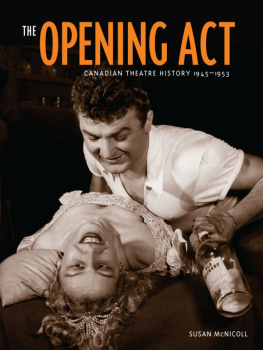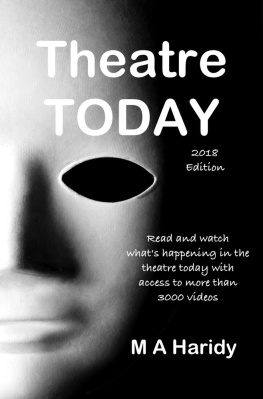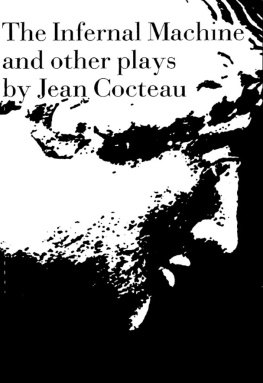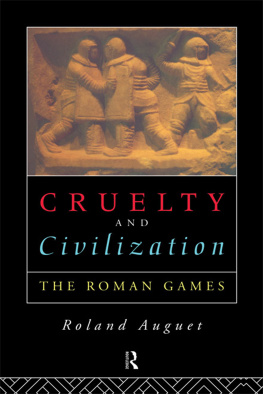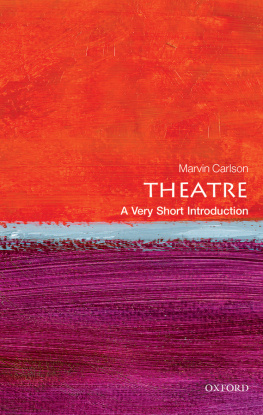Albert Bermel - Artauds Theatre of Cruelty
Here you can read online Albert Bermel - Artauds Theatre of Cruelty full text of the book (entire story) in english for free. Download pdf and epub, get meaning, cover and reviews about this ebook. year: 2001, publisher: Bloomsbury Academic, genre: Detective and thriller. Description of the work, (preface) as well as reviews are available. Best literature library LitArk.com created for fans of good reading and offers a wide selection of genres:
Romance novel
Science fiction
Adventure
Detective
Science
History
Home and family
Prose
Art
Politics
Computer
Non-fiction
Religion
Business
Children
Humor
Choose a favorite category and find really read worthwhile books. Enjoy immersion in the world of imagination, feel the emotions of the characters or learn something new for yourself, make an fascinating discovery.

- Book:Artauds Theatre of Cruelty
- Author:
- Publisher:Bloomsbury Academic
- Genre:
- Year:2001
- Rating:4 / 5
- Favourites:Add to favourites
- Your mark:
- 80
- 1
- 2
- 3
- 4
- 5
Artauds Theatre of Cruelty: summary, description and annotation
We offer to read an annotation, description, summary or preface (depends on what the author of the book "Artauds Theatre of Cruelty" wrote himself). If you haven't found the necessary information about the book — write in the comments, we will try to find it.
Artauds Theatre of Cruelty — read online for free the complete book (whole text) full work
Below is the text of the book, divided by pages. System saving the place of the last page read, allows you to conveniently read the book "Artauds Theatre of Cruelty" online for free, without having to search again every time where you left off. Put a bookmark, and you can go to the page where you finished reading at any time.
Font size:
Interval:
Bookmark:
Artauds Theatre of Cruelty
Albert Bermel

Bloomsbury Methuen Drama
An imprint of Bloomsbury Publishing Plc
50 Bedford Square | 1385 Broadway |
www.bloomsbury.com
Bloomsbury is a registered trade mark of Bloomsbury Publishing Plc
First published in the United States in 1997
by Taplinger Publishing Co. Inc., New York
First published in the UK in 2001 by Methuen Publishing Ltd
Reprinted by Bloomsbury Methuen Drama 2006, 2007, 2008, 2013
Albert Bermel 1997 & 2001
All rights reserved. No part of this publication may be reproduced or transmitted
in any form or by any means, electronic or mechanical, including photocopying,
recording, or any information storage or retrieval system, without prior permission in
writing from the publishers.
Albert Bermel has asserted his right under the Copyright, Designs and Patents Act,
1988, to be identified as author of this work.
No responsibility for loss caused to any individual or organization acting on or
refraining from action as a result of the material in this publication can be accepted by
Bloomsbury or the author.
Visit www.bloomsbury.com to find out more about our authors and their books
You will find extracts, author interviews, author events and you can sign up for
newsletters to be the first to hear about our latest releases and special offers.
British Library Cataloguing-in-Publication Data
A catalogue record for this book is available from the British Library.
eISBN-13: 978-1-4081-1802-3
Library of Congress Cataloging-in-Publication Data
A catalog record for this book is available from the Library of Congress.
1 The Breakaway
Possibilities, Masterpieces, Irrationalities
2 Redefinitions
The Plague, Culture, Cruelty
3 Inspiration and Aspirations
Unification, Healing, Temperament and Sexual Attitudes
4 From Antiquity On
Prior to Aristotle, Aristotle, Seneca, the Jacobeans
5 Into the Twentieth Century
Epic, Surrealism, Symbolism, Modern Staging
6 Related Arts
Painting, Film, Dance, Ritual
7 Playwright
Paul the Birds, The Fountain of Blood, The Philosophers Stone, There Is No More Firmament, The Conquest of Mexico, The Cenci
8 Actor and Director
Performer, Coach, The Cenci on Stage
9 Social Redeemer
Questions, Doubts, Limitations
10 In the Auditorium
Modernizing the Classics, Encompassing the Audience
11 On the Boards
Using the Stages Three Dimensions, Depersonalizing the Characters, Inventing a New Theatre Language
12 Looking Backwards 20001977
Artauds Life and Writings: A Chronology
Neither Drugs Nor Madness
Anybody who writes at length about Artauds life will have to discuss his dependence on drugs and his bouts of bizarre behaviour, culminating in the twelve years he spent imprisoned in asylums. This book is not an account of his life, but of his theatre. I have appended a biographical summary, for reference, without relating it causally to his writings. But even if I had attempted a biographical study, I would have put no stock in what seems to me a fairly general assumption made by people who do not admire Artaud: that his addiction and/or insanity rendered him more sensitive, or assisted his imagination, or could have been even partially responsible for the audacity and unorthodoxy of his ideas. Artaud suffered desperately from his addiction and tested many cures; these and his periods of schizophrenia can only have hampered him as he tried to focus his thoughts, manage his life day by day, and articulate and practise the theatre he dreamed of. Coping with the double affliction exhausted him and diverted him from his purposes.
It would be unnecessary to say this if we were not still romantically disposed to looking on madness (whatever madness is) and drug-induced excitement as states of artistic elation. We use the word inspired with a consciousness of its original meaning, possessed by a spirit, preferably a demon, and are haunted by memories of Thomas De Quincey, Sherlock Holmes, and the power-drunk villains of science fiction, not to mention the legends of potes maudits.
These are partisan remarks. If we believed that Artaud had incurred artistic debts to what were evidently grave handicaps, we could not take his writings seriously as proposals; and I have wanted throughout this book to face up to those proposals as products of a mind that was uncommonly, uncannily lucid. We do find, saturating all of Artauds writings, ecstatic visions of what theatre might be. These visions, rather than any sensible philosophy or single principle, are what has given Artaud a leading place in the theatre of the twentieth century. In France I have even heard him referred to as the father of the modern French theatre. I am not at all sure that there is any one father Andr Antoine, Alfred Jarry and Jacques Copeau insist on being reckoned with but in any case, Artauds theatrical ideas have caught on, not because he was deranged or stoned on opium, but because they are extraordinary and yet fierce with sanity.
This book is a secondary and tertiary source of data, although Id like to think the interpretations are first hand.
I am grateful to the authors of the books and articles I have consulted and listed in the bibliography, including the ones I disagree with. I also thank the Research Foundation of the City University of New York for a grant that enabled me to visit Paris at a time when I was strapped for money; the librarians at the Bibliothque de lArsnal and the Bibliothque Jacques Doucet; the literary adviser at the Odon National Theatre; Irving Wardle and Caradoc King, who read the first edition and offered suggestions I was glad to incorporate; and friends and relatives in France, England and the US who, in one way or another, made the going easier.
ALBERT BERMEL
New York, 2000
Theatre as Therapy
The Breakaway
The writings of Artaud give a sympathetic reader the feeling that anything is possible in the theatre. Artaud had passionately committed his life to possibilities that is, to what other people would consider impossibilities. His poets cunning and his prophetic fervor continually transform his notations of what ought to be into what is, so that one comes almost to imagine his theatrical visions realized. And yet those visions do not add up to a program or blueprint; there is little point in describing or criticizing them as though they formed a coherent whole. Prophets foresee by lightning flashes and glimmers of light. They do not tell the future, only splinters of it. I suspect that the very notion of a systematic Artaudian theatre would have been abhorrent to Artaud. I would argue with most of that quotation, beginning with the contradiction in terms, partial truths. To assert that Artauds writings are profoundly interconnected is to beg a question. How profound is profound and how deeply is it necessary to excavate? This critic does not, could not, come up with Artauds unitary concept of the theatre, let alone render it fully comprehensible. Poetry and prophecy do not offer themselves to full comprehensibility; they call forth individual and varying responses.
Next pageFont size:
Interval:
Bookmark:
Similar books «Artauds Theatre of Cruelty»
Look at similar books to Artauds Theatre of Cruelty. We have selected literature similar in name and meaning in the hope of providing readers with more options to find new, interesting, not yet read works.
Discussion, reviews of the book Artauds Theatre of Cruelty and just readers' own opinions. Leave your comments, write what you think about the work, its meaning or the main characters. Specify what exactly you liked and what you didn't like, and why you think so.

